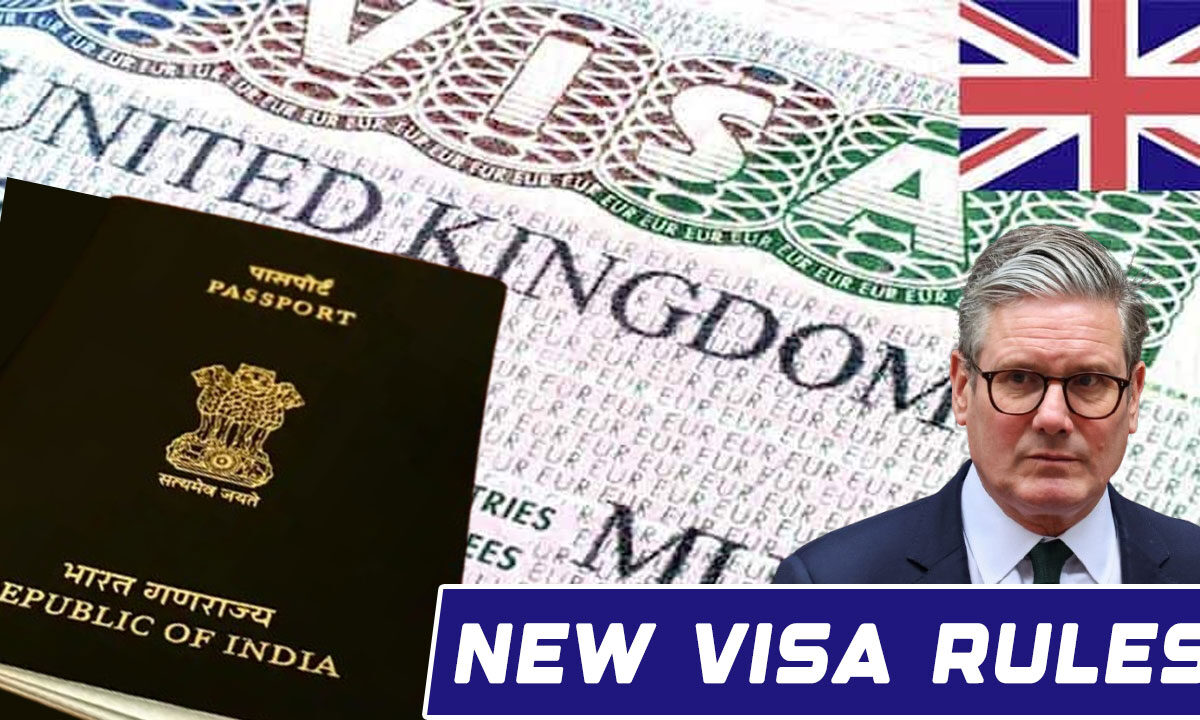Is the UK Closing Doors on Migrants? What Do Keir Starmer’s New Visa Rules Really Mean for Indians?

In a major overhaul of Britain’s immigration policy, UK Prime Minister Keir Starmer has announced a sweeping set of reforms that will significantly tighten the rules for migrants seeking permanent residency — also known as Indefinite Leave to Remain (ILR). The most notable change is a doubling of the residency requirement from five to ten years.
Table of Contents
Indians Most Affected by New UK Immigration Rules
The decision is expected to have a major impact on Indian nationals, who make up the largest group of professionals and students entering the UK each year.
According to the Office for National Statistics, approximately 250,000 Indians migrated to the UK in 2023, primarily for education and skilled employment.
New Residency Rule: 10 Years Before ILR
Under the new rule, migrants will now need to live in the UK for 10 years before they can apply for permanent residency. This ends the earlier provision that allowed settlement after five years.
Only individuals who can demonstrate a “real and lasting contribution” to British society and the economy may be eligible for exceptions, as per reports by The Financial Times and the BBC.
Skilled Worker Visa Requirements Tightened
In addition to extending the ILR wait time, the skilled worker visa criteria have been made stricter:
- Applicants must now have a degree-level qualification, reversing previous rules introduced under Boris Johnson, which allowed applicants with A-level equivalents.
- Salary thresholds for visa holders bringing dependants are also set to rise.
- English language requirements will be raised for both visa holders and their family members.
Starmer: “We Will Take Back Control of Our Borders”
Prime Minister Starmer emphasized that the reforms are meant to restore control over UK borders and reduce reliance on migration for economic growth.
“We will take back control of our borders and close the book on a squalid chapter of rising inward migration,” he was quoted saying by The Guardian.
Despite a 10% drop in net migration over the past year, the UK government appears to be responding to increasing public and political pressure, especially from Reform UK and Conservative Party supporters.
No Target, But Promise of “Significant” Migration Reduction
While Starmer refused to set a numerical cap on net migration — rejecting a Tory proposal for an annual limit — he vowed that the numbers will “fall significantly.”
He argued that the belief linking high migration to economic growth had not held true in recent years.
“Migration quadrupled, but the economy stagnated,” he noted.
Rise of Reform UK and the Political Shift on Immigration
The new policies are also seen as a strategic response to the growing popularity of Nigel Farage’s Reform UK party, which made strong gains in the recent local elections.
To counter this surge, the Labour government appears to be aligning its rhetoric with public sentiment, signalling further possible restrictions if needed.

